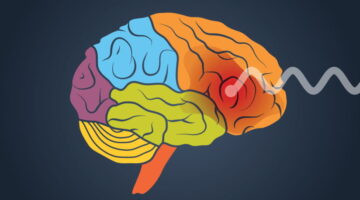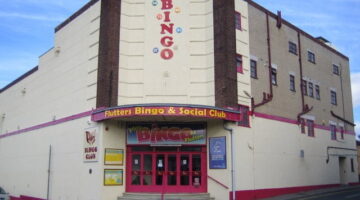Who does problem gambling affect?
Problem gambling can affect anyone. It can happen at any age, to males or females, and to people from any ethnic background. Studies have shown that you are more likely to develop a problem if you have a family history of problem gambling and if you started gambling at an early age. Find out more about young people and problem gambling here.
Problem gambling has been called the ‘hidden addiction’, meaning that unlike other addictions such as alcohol or drug addiction, the physical effects of the problem are very difficult to see. You are unlikely to know that someone has a gambling problem unless they tell you.
The impact of someone else’s gambling problem can be very stressful for friends and family members. GambleAware® offer support to anyone struggling with a loved one’s gambling problem. Find out how to talk to someone about their gambling here, or call the National Gambling Helpline to receive support and access free, confidential counselling.
Signs to look out for
Is your gambling causing problems for you or others around you? The following signs may indicate a problem:
- Spending more money and time on gambling than you can afford.
- Finding it hard to manage or stop your gambling.
- Having arguments with family or friends about money and gambling.
- Losing interest in usual activities or hobbies like going out with friends or spending time with family.
- Always thinking or talking about gambling.
- Lying about your gambling or hiding it from other people.
- Chasing losses or gambling to get out of financial trouble.
- Gambling until all of your money is gone.
- Borrowing money, selling possessions or not paying bills in order to pay for gambling.
- Needing to gamble with larger amounts of money or for a longer time to get the same feeling of excitement or buzz.
- Neglecting work, school, family, personal needs or household responsibilities because of gambling.
- Feeling anxious, worried, guilty, depressed or irritable.
Remember, problem gambling behaviour is often hidden
It can be difficult to know if someone has a problem with gambling. Initially we may not want to believe that someone we know or love has a problem with gambling. It can also be difficult to detect a gambling problem, because many people who gamble do not show their feelings and may lie or get angry if questioned about their behaviour.
People sometimes say they feel that they should have noticed sooner, but remember the person gambling may have gone to great lengths to hide it from you.
Read more about how to help a problem gambler, and yourself, here.
Once you have noticed there are many ways we can help you and the person gambling. Whether or not you think any of these points apply to you, if you think you, or someone close to you may have a gambling problem, and you would like help and support, visit our Confidential Help page or contact the National Gambling Helpline on freephone 0808 8020 133.
Relevant news

How to beat an online gambling addiction
Earlier this week, it was revealed that a 23-year old accountant who plunged to his…

PayPal Casinos – Online casinos that accept PayPal for deposits and withdrawals
PayPal Holdings, Inc. is an American company operating a worldwide online payments system that supports…

Video slot machines
The online casino video slot machine is a more recent innovation, with no moving parts…

Betting on Bingo at Leading UK Sites
Bingo is one of the most played betting games in the United Kingdom, both online…

All About Jackpots
They’re the kind of wins that dreams are made of, landing the big one, the…

How the Brain Gets Addicted to Gambling
Addictive drugs and gambling rewire neural circuits in similar ways: When Shirley was in her…

How to beat an online gambling addiction
Earlier this week, it was revealed that a 23-year old accountant who plunged to his…

PayPal Casinos – Online casinos that accept PayPal for deposits and withdrawals
PayPal Holdings, Inc. is an American company operating a worldwide online payments system that supports…

Video slot machines
The online casino video slot machine is a more recent innovation, with no moving parts…

Betting on Bingo at Leading UK Sites
Bingo is one of the most played betting games in the United Kingdom, both online…

All About Jackpots
They’re the kind of wins that dreams are made of, landing the big one, the…

How the Brain Gets Addicted to Gambling
Addictive drugs and gambling rewire neural circuits in similar ways: When Shirley was in her…
